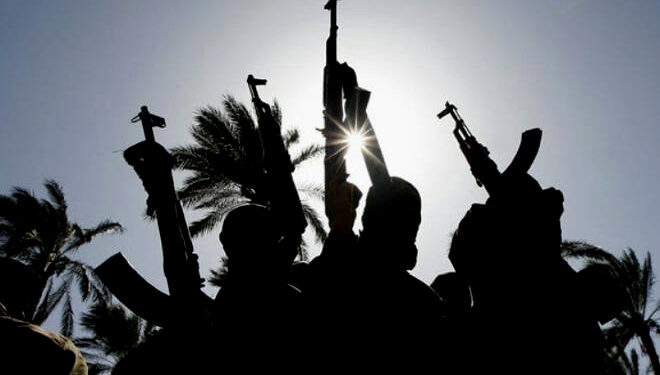Some experts, on Thursday said that schools should be safeguarded against attacks because education is one of the factors that contributes significantly to the national development of a country.
The experts made this known during a virtual conference orgainsed by the Nigerian Institute of International Affairs (NIIA) in collaboration with the United Nations in Nigeria.
The conference, themed, “Education , Security and National Development“, was held in commemoration of the International Day to Protect Education from Attack.
The News Agency of Nigeria (NAN) reports that the day was established by a unanimous decision of the UN General Assembly, calling on UNESCO and UNICEF to raise awareness of the plight of millions of children living in countries affected by conflict.
Prof. Eghosa Osaghae, Director General, NIIA, said that education in the past, present and future held “the key to unlocking the destinies and potentialities of all societies.”
According to him, perpetrators of violent attacks on schools can only harass and terrorise the people but cannot kill the spirit of the education sector.
“We need all of us to have the awareness, presence of mind and sensitivity to deal with the issues at hand,” Osaghae said.
Sunday Echono, Permanent Secretary, Federal Ministry of Education, said that schools worldwide were under attack and there was a need for greater collaboration to see how the menace could be addressed on a holistic basis.
Echono said that the government had been deploying efforts to tackle the challenges on education
According to him, since the two major abductions in Chibok and Dapchi, the government has come up with a number of policy instruments to address the problem.
“In partnership with the UN, Nigeria came up with the safe schools initiative to harness ideas on how to address the menace. Recently, in response to the heightened spate of attacks, the government set up a committee on security.”
Echono added that education remains the most effective weapon that could be used to protect education from attack.
This, he said can be achieved by dealing with underlying issues of poverty, illiteracy and hopelessness which translate into discontent and criminality in people who lack skills and knowledge to participate in the economy of the society.
“We must address the issue of out-of-school children, ensuring that we move even these bandits from the forest to get some form of skills, knowledge and education to enable them live more productive lives,” Echono said.
Also, Rt. Rear Admiral Michael Johnson said that education was one of the components of national security as important as the defense of any nation.
Johnson said that it must readily be acknowledged that Nigeria had drifted to a situation of low academic standard for quite sometime.
“We must remind ourselves that the power of a nation is determined among other factors not only by the abundance of natural resources but also by the large number of educated people it can muster at any time.
“With rapid changes in technology, and the world becoming increasingly knowledge based, education has become the driver of human development.
Related Articles
“How are we going to be active participants in the fourth industrial revolution with a declining quality of education.
“Quality education is a key component for any nation that wishes to enhance the standard of human resources, create new skills, cultural values and behavioral pattern required in the industry,” he said.
According to him, a nation whose people are not educated, disciplined and organised cannot develop.
“An attack on schools, teachers and students is an attack on national development.
“We should bring all elements of national power to bear in fighting insecurity and also dwell more on diplomacy.
“The government must provide good governance, ensure equity, justice and curtail the proliferation of arms Increased funding to schools, improved welfare of teachers and upgrade of technological infrastructure are also necessary to safeguard schools from attacks,” Johnson said.
Prof. Kyari Mohammed, Vice Chancellor, Army University, Bui, Borno State, urged the Federal Government to declare a state of emergency on education in all states affected by banditry.
He also advised that communities should be involved in critical decision making in terms of security.
“The government should declare a state of emergency in all states affected by banditry and kidnapping of students as these move would be a good step in addressing this issue.
“Also, communities that are affected by this issues should be carried along in the critical decision making cause they are the ones directly affected and their inputs are needed.
“There should also be long term plans in addressing the roots of the violence so as to find a long and lasting solution to the problem at hand,” he said.
Aisha Ali, a teacher, advised that victims of kidnapping should be given mandatory counseling so as to prevent a mental breakdown.
“Victims of these unfortunate events are always stigmatized by their peer group and this shouldn’t be the case but we live a world where people always find it easy to hate one another.
“Counseling is a quick fix to these issue as this would help the victims mentally and aid in eradicating the truama they have faced during the incident.
“This step is extremely important in preventing a total breakdown in the mental health of students,” she said.
Zara Mohammed, a victim of kidnapping, urged the government to safeguard school in the northern region as education is paramount in that region.
“In 2014, I was kidnapped by unknown gunmen but I was eventually rescued by the army but the whole experience affected my mental health.
“So many children like me want to be educated but the situation has made many of us scared so this is a passionate appeal to the government to secure our lands so we can go to school.” she said.








